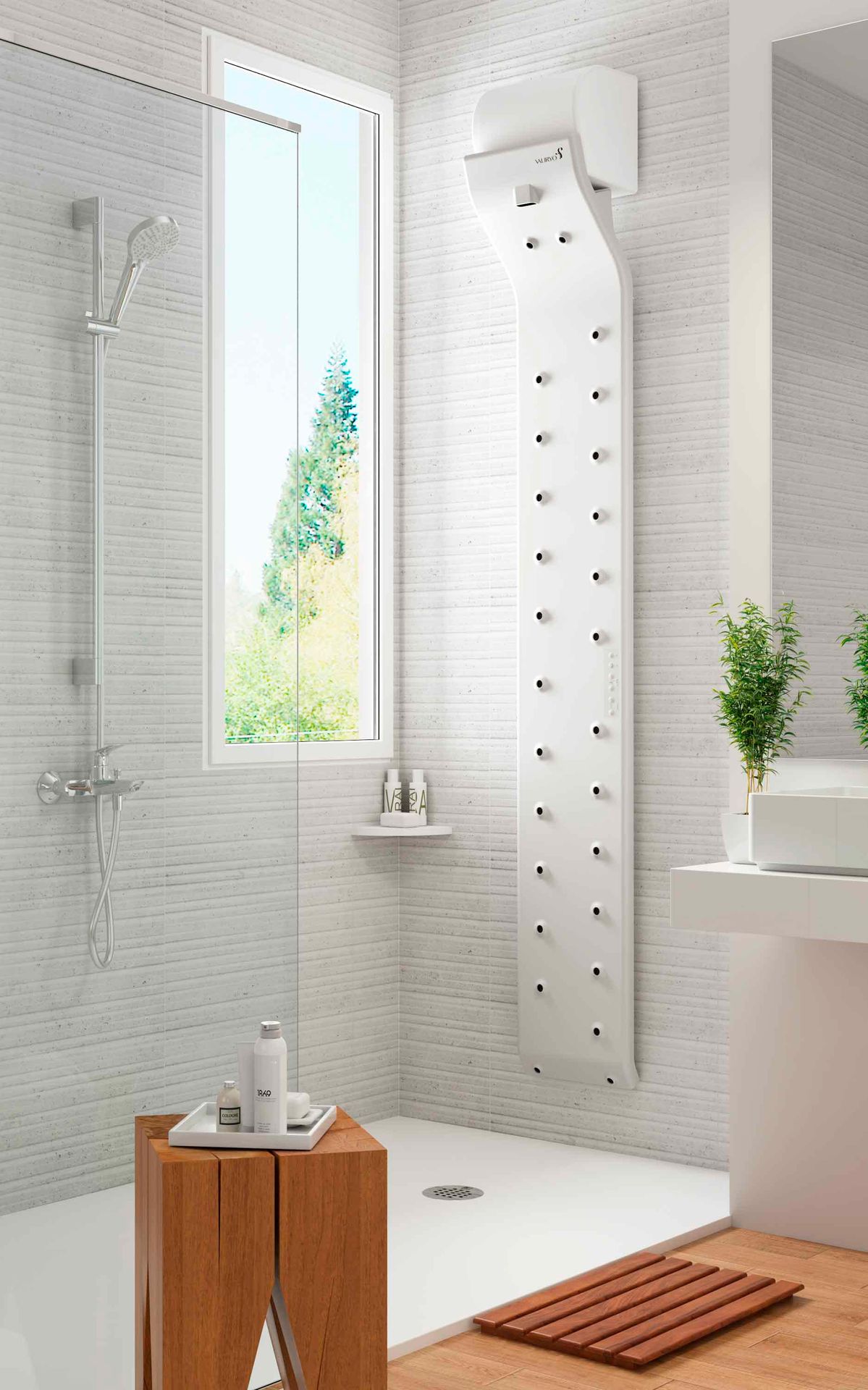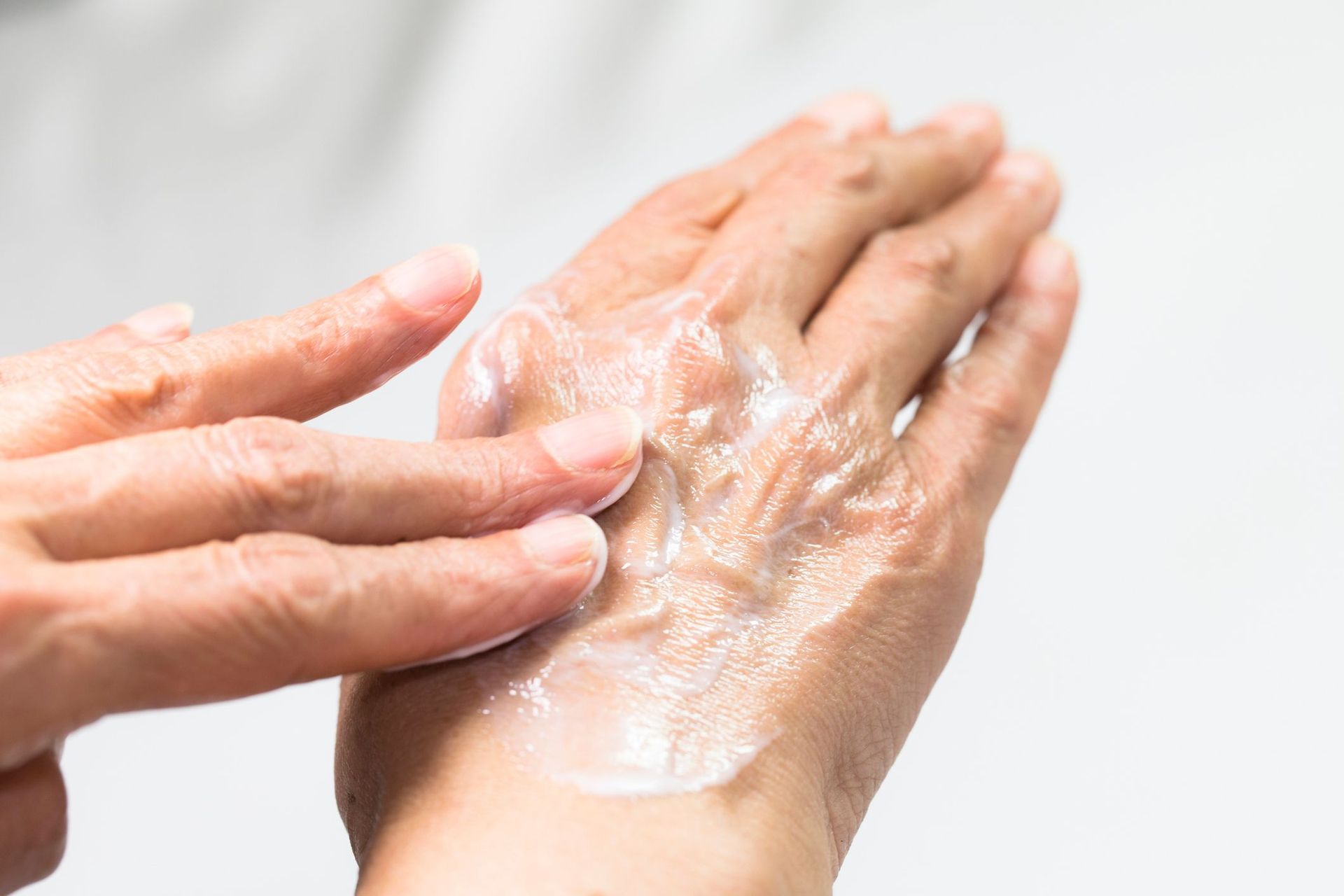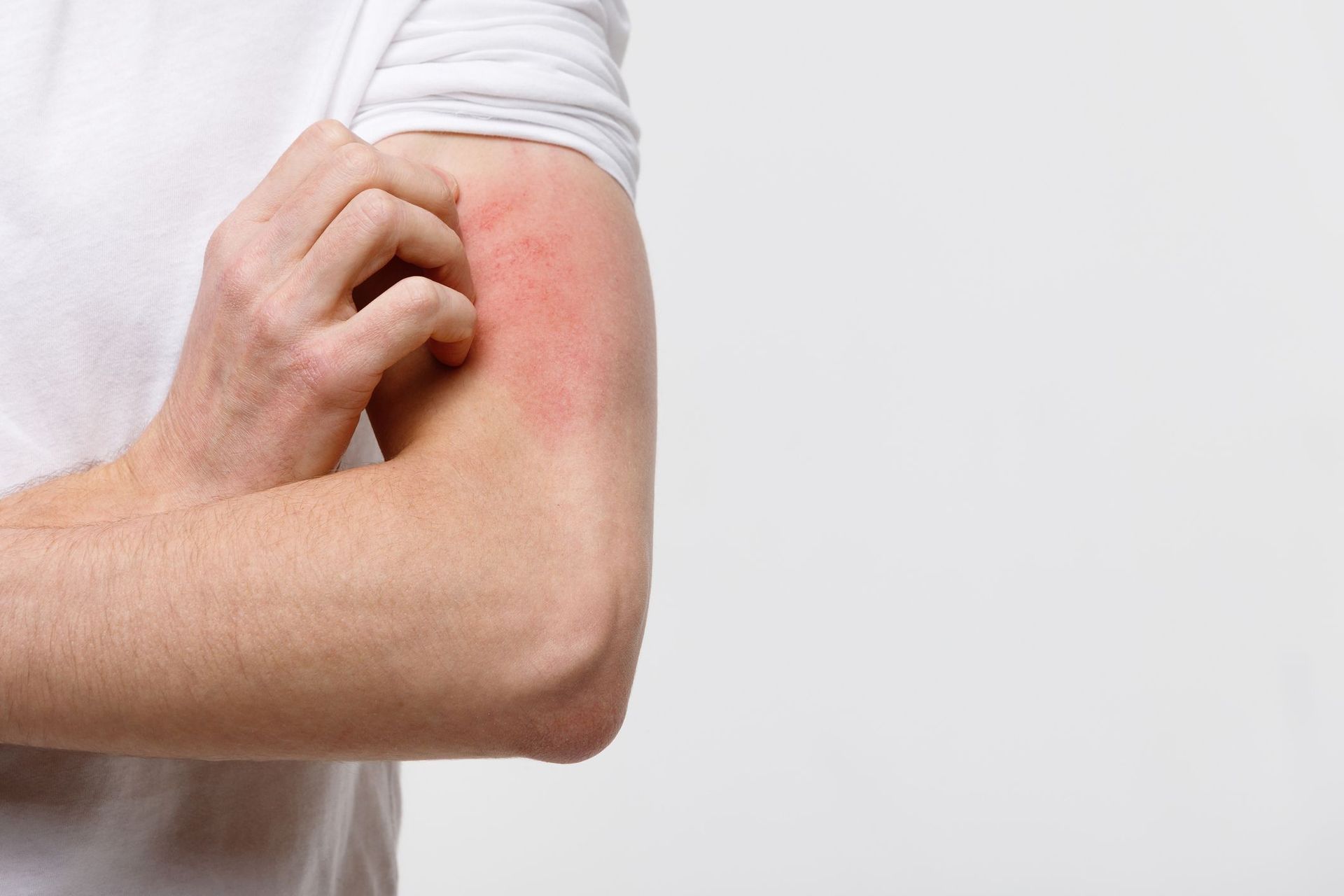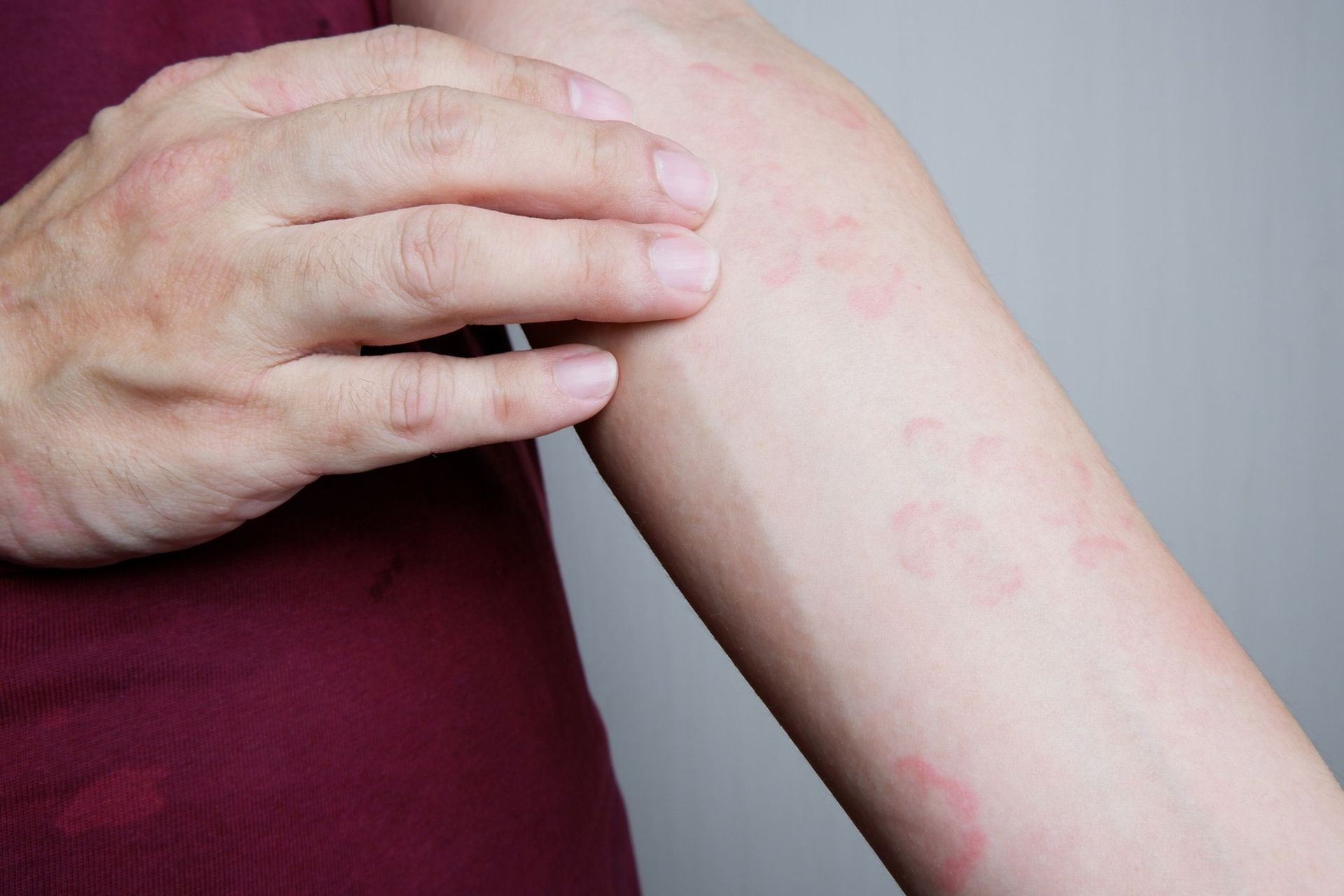Atopic skin, also known as atopic dermatitis, is a chronic condition that affects millions of people worldwide. It often begins in childhood but can also persist or emerge in adulthood. This condition can cause significant discomfort and impact the quality of life for those who suffer from it.
Learn more about atopic skin in detail in this post by Valiryo: what it is, its symptoms, the issues it can cause in adults, and discover some practical tips on how to care for it daily.

Do you want to discover a new way to dry without using a towel?
With our body dryer, you'll not only achieve thorough and efficient drying but also notice your skin feeling softer and more hydrated.

Do you want to discover a new way to dry without using a towel?
With our body dryer, you'll not only achieve thorough and efficient drying but also notice your skin feeling softer and more hydrated.
What is Atopic Skin or Atopic Dermatitis?
Atopic skin or atopic dermatitis is an inflammatory skin disease that typically occurs in those with a genetic predisposition to develop allergies. It is characterized by extreme dryness, intense itching, and the appearance of rashes.
While the exact cause of atopic dermatitis is not precisely known, it is believed to result from a combination of genetic, immunological, and environmental factors. Children with a family history of atopic dermatitis, asthma, or allergies are at higher risk of developing this condition.
People with atopic skin have a defective skin barrier, meaning their skin does not retain moisture well and is more susceptible to irritants and allergens. This can lead to flare-ups of inflammation and itching, which can be very uncomfortable and sometimes difficult to manage.

Main Symptoms of Atopic Dermatitis
Atopic dermatitis, also known as atopic eczema, presents a variety of symptoms that can vary in severity and manifest differently depending on the person and life stage. Below are the most common symptoms of this chronic skin condition:
Extreme Dryness
Skin affected by atopic dermatitis is often extremely dry. The lack of moisture can make the skin feel rough and tight, and it can predispose it to irritation and damage from scratching.
Intense Itching
Itching is one of the most characteristic and bothersome symptoms of atopic dermatitis. It can be so severe that it even disrupts sleep and daily activities. Intense itching can lead to constant scratching, which can further aggravate inflammation and cause skin lesions like scabs or crusts.
Redness and Inflammation
Areas affected by atopic dermatitis are often red due to inflammation. This redness can range from a light pink hue to a more intense red in severe cases.
Skin Rashes
Rashes are common in atopic dermatitis and can appear anywhere on the body. In children, rashes often occur on the scalp, face, and in the creases of the arms and legs. In adults, they are more common on the hands, feet, neck, and the inner elbows and knees.
Skin Thickening (Lichenification)
Chronic scratching can lead to skin thickening in the affected areas. This thickening, known as lichenification, makes the skin appear more leathery and prone to cracking and developing painful fissures.
Lesions and Crusts
Atopic skin can develop open lesions due to constant scratching. These lesions can become infected, leading to the formation of yellowish or golden crusts and may require medical treatment to prevent complications.
Changes in Skin Color
In some cases, atopic dermatitis can cause changes in skin pigmentation. Affected areas may become darker (hyperpigmentation) or lighter (hypopigmentation) than the surrounding skin.

Impact of Symptoms on Daily Life
The symptoms of atopic dermatitis not only physically affect those who suffer from it but can also have a significant impact on their emotional and social well-being. Constant itching and visible rashes can lead to decreased self-esteem and social anxiety. Additionally, sleep disruption due to itching can cause fatigue and affect concentration and performance at work or school.
It is important to address the symptoms of atopic dermatitis comprehensively, combining medical treatments with lifestyle changes and the use of appropriate skin care products. By doing so, it is possible to significantly improve the quality of life for those living with this chronic condition.
Problems of Atopic Skin in Adults
Although atopic dermatitis is more common in children, many adults also suffer from it. In adults, the condition can present additional challenges:
- Psychological Impact: constant itching and the appearance of the skin can lead to self-esteem issues and stress.
- Infections: continuous scratching can cause open wounds, which can easily become infected.
- Work-related Issues: people with severe atopic skin may find it difficult to perform certain tasks at work, especially those involving contact with irritants.

Tips for Treating Atopic Dermatitis
Managing atopic dermatitis requires a combination of daily care and medical treatments. Here are some practical tips:
Maintain Good Hydration
Keep your skin well-hydrated by using creams several times a day. Choose fragrance-free products specifically designed for sensitive skin.
Short, Lukewarm Baths
Avoid long, hot baths as they can further dry out your skin. Use gentle, soap-free cleansers.
Avoid Towels When Drying
Towels can promote the onset or worsening of atopic dermatitis. One of the most effective ways to dry your body optimally is the Valiryo body dryer, which allows you to dry effortlessly while enjoying a moment of relaxation.
Wear Appropriate Clothing
Wear soft cotton clothing and avoid irritating materials like wool and polyester.
Avoid Triggers
Identify and avoid factors that trigger your flare-ups, such as certain foods, environmental allergens, or stress.
Medical Treatments
Consult a dermatologist for specific treatments like topical corticosteroids, calcineurin inhibitors, or more advanced therapies if needed.
Valiryo Body Dryer for Atopic Skin
One of the innovations that can be highly beneficial for people with atopic skin is the Valiryo Body Dryer. This device not only dries the skin efficiently but also offers several specific benefits for those with atopic dermatitis:
Gentle Drying
The Valiryo body dryer provides uniform and delicate drying, reducing the need to rub the skin with towels, which can cause irritation.
Improved Hygiene
Air drying helps keep the skin cleaner and reduces the risk of infections that can occur due to scratching and open wounds.
Adjustable Temperature
You can adjust the air temperature to be warm but not hot, which is ideal for sensitive skin.
Less Friction
By eliminating the use of towels, friction on the skin is reduced, which can minimize irritation and damage.

Atopic skin can be a challenging condition, but with proper care and the right tools, it is possible to effectively manage its symptoms. Constant hydration, identifying and avoiding triggers, and using devices like the Valiryo body dryer can make a significant difference in the quality of life for those with this condition.
At Valiryo, we understand the importance of proper skin care and are committed to offering innovative solutions that enhance your daily well-being. Include the Valiryo body dryer in your daily routine for gentler and more effective skin care.
If you want to learn more about our body dryer, its main features, or advantages, visit our website now and buy Valiryo for your bathroom. Take care of your skin with Valiryo.